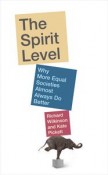NEW – JEREMY LENT, THE PATTERNING INSTINCT – What stories have we been telling ourselves?
Written on April 20th, 2018In The Patterning Instinct: A Cultural History of Humanity’s Search for Meaning, JEREMY LENT writes, “The right wing has not won on the issues, but by telling a grand story of America – a story that is false and based on a set of values that are driving civilization to a precipice. It’s been successful because there has been no coherent counter-narrative.” We look at that history and look ahead for a new story.
Free Forum Q&A – SYSTEMS THINKING (1) FRITJOF CAPRA, author of several books including The Tao of Physics; The Turning Point & (2) NORA BATESON, director AN ECOLOGY OF MIND doc re: her late father, Gregory Bateson
Written on May 7th, 2015(1) FRITJOF CAPRA – Originally aired April 2009
(2) NORA BATESON – Originally aired July 2012
Both interviews this week explore systems thinking – one of the key ingredients of a world that just might work.
First. I speak with FRITJOF CAPRA, who wrote a book in 1981 that greatly influenced my view not only of science, medicine, agriculture, energy, and even politics – it influenced my view of reality. That book was THE TURNING POINT, and its message is as profound and revolutionary today. “We live today in a globally interconnected world, in which biological, psychological, social, and environmental phenomena are all interdependent. To describe this world appropriately we need an ecological perspective which the Cartesian world view does not offer. What we need, then, is a new ‘paradigm’ – a new vision of reality; a fundamental change in our thoughts, perceptions, and values.” Capra wrote those words in its preface.
In the second half my guest will be NORA BATESON, and we’ll talk about AN ECOLOGY OF MIND, the wonderful documentary she’s made about her father, the late anthropologist GREGORY BATESON. Her documentary is subtitled A Daughter’s Portrait of Gregory Bateson. It tells of the unique anthropologist, philosopher, author, naturalist, and systems theorist, who was ahead of his time in seeing reality as made up not of things or even of ideas, but of relationships. The film features interviews with California Governor Jerry Brown, physicist and systems theorist Fritjof Capra, Whole Earth Catalogue publisher Stewart Brand, cultural philosopher and poet William Irwin Thompson; and Nora’s sister, anthropologist Mary Catherine Bateson. Nora’s film will introduce Bateson to a new generation and remind many of us of the impact her father had on the way a lot of people perceived the world.
“The major problems in the world are the result of the difference between how nature works and the way people think.” Those are the words of the late Gregory Bateson – and I couldn’t agree more.
Q&A: RICHARD DAVIDSON, DAVID EAGLEMAN, and PETER BAUMANN
Written on March 15th, 2012
 |
Aired 03/11/12
RICHARD DAVIDSON, author,
The Emotional Life of Your Brain
DAVID EAGLEMAN, author,
Incognito: The Secret Lives of the Brain
PETER BAUMANN, convener,
BEING HUMAN 2012
In 1989 I addressed the 20th reunion of my Harvard class. In 1969, we’d spearheaded student protests that led to a month long strike of the University. Our demands included removing ROTC from campus, creation of an African-American studies program, and reforming Harvard’s behavior as a landlord. Twenty years later, I encouraged my classmates to live up to our youthful ideals. I recall focusing on environmental challenges, including the mounting evidence of man-made contributions to climate change. But when asked where we needed to focus our attention to turn things around, I pointed to the environment within our own minds.
Now, over twenty years later, my conversations about politics, economics, technology, ecology, etc. focus more and more on the need to tinker with the human software that drives or interprets everything we do. As we use the tools of science to explore the nature of humanity, we are learning more and more about how our brains function and what motivates our behavior, built-in biases and blind spots. I find myself paying a lot of attention to the fields of behavioral economics, cognitive neuroscience, evolutionary psychology, social anthropology, philosophy – that promise to overthrow long-held biases and stories about what it means to be human.
http://thebaumannfoundation.org
Q&A: RICHARD WILKINSON & KATE PICKETT, Authors – The Spirit Level: Why More Equal Societies Almost Always Do Better
Written on February 5th, 2010 |
Aired 01/31/10
RICHARD WILKINSON & KATE PICKETT authors of an important new book: The Spirit Level: Why More Equal Societies Almost Always Do Better
In the UK, the Guardian says The Spirit Level "might be the most important book of the year, and The New Statesman named it one of the top ten books of the past decade.
Based on thirty years' research, The Spirit Level shows that unequal societies are bad for the well-off as well as the poor, when it comes to health and social problems, child well being, life expectancy, infant mortality, obesity, educational scores, drop out rates, illegal drug use, mental illness, homicide, incarceration, CO2 emissions, recycling, social mobility, innovation, and levels of trust.
The good news: If all these ills are related to one measure - income inequality, then, decreasing inequality should be the central goal of our politics because we can be confident that it works.
RICHARD WILKINSON has played a leading role in international research on inequality. He studied economic history at the London School of Economics before training in epidemiology, and is Professor Emeritus at the University of Nottingham Medical School and Honorary Professor at University College London.
KATE PICKETT is a senior lecturer at the University of York and a National Institute for Health Research Career Scientist. She studied physical anthropology at Cambridge, nutritional sciences at Cornell and epidemiology at Berkeley before spending four years as an Assistant Professor at the University of Chicago.

